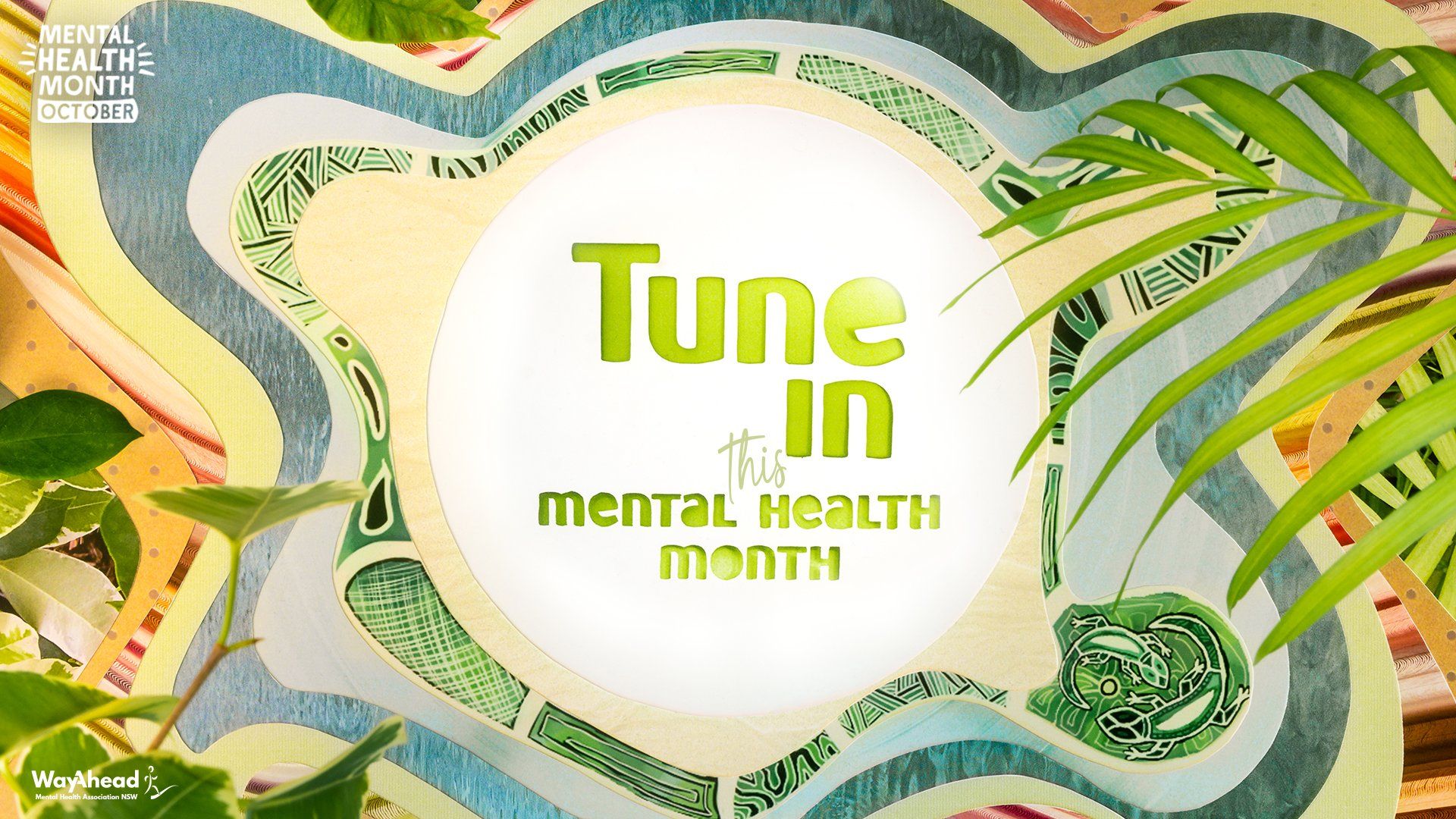October is Mental Health Month
Naomi Iredale • September 14, 2021

Mental Health Month is a chance to promote activities and ideas that can have a positive impact on our daily lives and the lives of others. These events and messages are tied together with a specific theme, and this year’s is “Tune In”.
So what does it mean to "Tune In"?
Simply put, tuning in means being present... It means being aware of what is happening within you, and in the world around you. Being present by tuning in has been shown to help build self-awareness, help make effective choices, reduce the impact of worry, and build positive connections.
Tune in to others – What might people around you be feeling? How can we connect?
Tune in to your communities – What is happening that you can be part of, or that you can help others be part of
You can tune in to many things:
Tune in to yourself – What can you sense right now? What can you feel?
Tuning In to yourself can start with checking in with yourself and asking a simple question: “what can I sense right now?” See, touch, taste, smell, and listen to the world around you and experience the way it makes you feel. You can also ask the question “how do I feel right now?” Identifying what you feel can improve awareness of your surroundings, help focus your mind and understand what is going on inside you.
Tuning in to yourself can also mean identifying things that help or harm your own mental health. For example, exercise may help improve your mental health and engaging in conflict might negatively impact your mental health.
How can you Tune In to yourself?
- Meditating
- Learning about and practicing Deep Listening (Winhangadhurinya in the Wiradjuri language; Dadirri in the Ngan’gikurunggurr and Ngen’giwumirri languages)
- Finding silence
- Connecting to Country and Ancestors
- Going for a walk
- Being in nature
- Journaling
- Practicing self-care
- Doing something creative – drawing,
- painting, knitting
- Creating a morning ritual
Tuning into others can build positive connections. Can you imagine what other people might be feeling and why? Does someone you love seem a bit down? Maybe you can head over and help them out with a chore or task, or just sit and have a casual chat. Alternatively, if you’re having difficulty connecting with others, it can help to let them know that. Sharing with others that things are a bit tough right now could help them understand how you’re feeling.
How can you tune in to others?
- Asking others how they are feeling
- Sharing a hobby
- Teaching them about something you love
- Helping with chores
- Playing games
- Staying in together
- Chatting on the phone
- Sharing a cuppa
You can tune in to communities by considering groups and networks you are part of and the activities that take place within them. How can you make communities and activities more welcoming, open or easier to access for those experiencing difficulty with their mental health and wellbeing? This might mean something specific, like hiring a bus to pick people up to go to community events, or more general, like thinking about community feelings after a natural disaster.
How can you tune in to communities?
- Joining a local hobby group
- Taking part in community rituals, ceremonies, and events
- Reviewing accessibility options for groups you are part of
- Reaching out to community members who might be isolated
- Starting wellbeing activities at work
- Attending free community events – libraries or councils often run them
- Creating a range of different options for people looking to connect
- Making sure your community/workplace/group takes part in Mental Health Month
Tune in to stigma – How do attitudes and understandings of mental health and wellbeing impact on people’s ability to live the lives they want?
You can tune in to stigma by considering the misconceptions, prejudice or barriers that you or others face regarding mental health and wellbeing. You can help increase understanding by making sure mental health and wellbeing are not taboo topics in your community, and letting others know if they are engaging in stigma-promoting behaviour.
How can you tune in to stigma?
- Challenging negative ideas around mental health
- Normalise talking about mental health and wellbeing
- Avoiding terms which can stigmatise mental health
- Engaging people with lived experience of mental ill-health as consultants
- Speak out about stigma when you notice it
Often, we only talk about mental health as an individual responsibility, but lots of things outside our control contribute to mental health.
Things like discrimination, inequality, intergenerational trauma, access to services, and government policies can negatively impact people’s and communities’ mental health.
During Mental Health Month we all have a chance to Tune In to things we can do as individuals for our own, and others’ mental health, but without organisations and groups doing work on the bigger picture, outside factors will continue to impact individual’s mental health and wellbeing. Creating a world where people can create their own best possible mental health means creating a world where all systems, structures, policies, and services support this vision. We aren’t there yet, but we’ll keep working until we get there.
Information source: https://mentalhealthmonth.wayahead.org.au/




